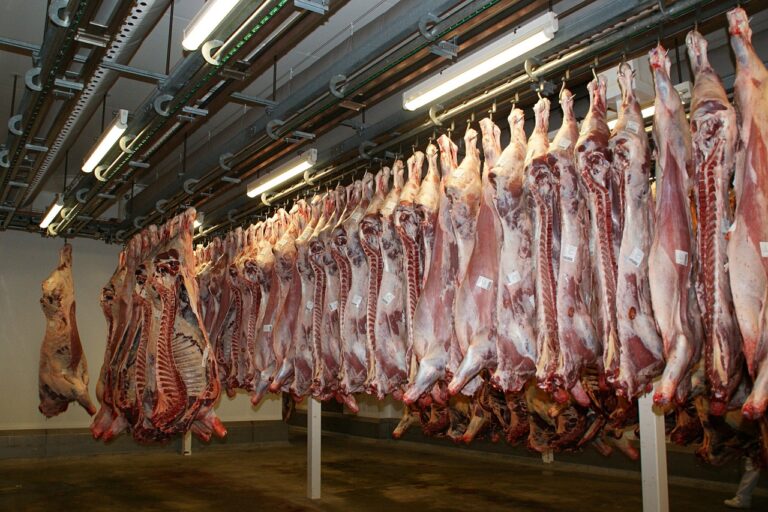Montevideo, Uruguay. The labor situation in the Uruguayan meat processing industry is going through a new chapter of tension. During the last weeks, the strikes called by the Federación Obrera de la Industria de la Carne y Afines (FOICA) have unleashed a series of damages that, although originating in a conflict between unions and employers, directly affect rural producers.
The agricultural unions, organized under the umbrella of Campo Unido, have raised their voices to denounce that it is the cattle ranchers who are paying the cost of this labor confrontation, even though they are not responsible for the negotiations.
A conflict with no solution in sight
For more than five months, meatpacking industry workers and representatives of the employers have been negotiating the wage conditions of the sector's workers. Despite lengthy discussions, no agreement has been reached. In this context, surprise stoppages have become a recurring union measure, with a new general strike scheduled for December 23 and 24, 2024. Despite the fact that a new negotiation is expected to take place in the Ministry of Labor and Social Security (MTSS)where the union will not participate FoicaThe conflict does not seem to have an immediate solution.
In a joint communiqué, the Rice Growers AssociationANational Association of Milk Producersthe Rural Association of Uruguaythe National Commission for Rural Development, Federated Agricultural Cooperativesand the Rural Federationexpressed their dissatisfaction with the situation. The document stresses that rural producers, as actors outside the negotiating table between workers and employers, cannot be the main victims of the slaughterhouse stoppages. For the producers, the conflict is not only a labor issue, but has become a direct economic problem that affects the stability of their finances and their ability to maintain their operations.
Adverse effects on livestock producers
The strikes in the meat processing plants, explain the unions of United Fieldhave direct consequences on livestock production. In the first place, animals arriving at slaughter plants, ready to be slaughtered, are forced to return to the fields due to the paralysis of the activity. This generates an immediate liquidity problem for producers, who lose the sale of animals and, therefore, their income, which compromises their ability to meet their own financial commitments, such as the payment of salaries to their employees.
But the damage does not end there. The animals that return to the fields after having been transported and subjected to long periods of confinement in slaughterhouses suffer a significant physical deterioration. Weight loss is one of the most immediate effects of this process, which generates a reduction in the commercial value of the animals. In addition, these animals experience a significant level of stress, which affects not only their welfare, but also the quality of the meat that will eventually be obtained from them.
Another serious problem is the loss of the sanitary quarantine that the animals had complied with before being sent to the slaughterhouse. This quarantine is a preventive measure to avoid the spread of diseases in cattle, and its expiration forces producers to wait at least 45 days before being able to sell the animals again. This further prolongs the period without income, further complicating the economic situation of cattle farmers.
The right to strike and the need for a comprehensive solution
Agricultural unions have made it clear that the right to strike is a legitimate right of workers and is not under discussion. However, what they cannot accept are sudden stoppages that not only affect employers, but ultimately harm rural producers, who have no influence or responsibility in labor decisions. In this sense, the entities that make up Campo Unido have urged that a solution be reached that minimizes the negative impacts on the agricultural sector.
In their communiqué, the guilds also requested the MTSS to declare of "essentiality" The Company will continue the slaughter process for animals that have already entered the slaughter plants. This measure would allow the slaughtering process to continue and would prevent cattle farmers from continuing to face losses. "National meat production is one of our main products and a source of pride for Uruguayans", they stress, emphasizing the importance of taking care of the productive chain that sustains a key part of the country's economy.
The urgency of protecting the production chain
The agricultural sector, through United Fieldhas launched an urgent appeal to all the actors involved in this conflict. Beyond labor and business interests, meat production is an economic pillar for Uruguay, which not only generates thousands of direct jobs, but also constitutes one of the country's most representative products in international markets.
As the conflict in the meat processing industry persists, livestock producers find themselves in an increasingly complex situation. The agricultural unions are calling for reflection, suggesting that solutions must be found that protect both the rights of workers and the interests of producers, without one of the two sectors being disproportionately harmed.
Communiqué from the agricultural associations (PDF)



